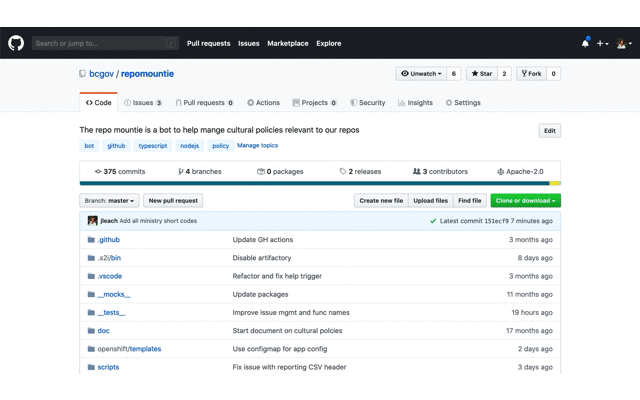This repo provides additional details about the BC Innovation Council's Data Visualization Tech Challenge. For more information, please see the BC Innovation Council's press release, "$75,000 available to solve government’s needs for data visualization".
The Province of British Columbia and other agencies collect a wealth of administrative data that relates to housing, including the market for housing, as a consequence of their regulatory and administrative authorities. These include data about legal ownership (Land Titles BC), the total stock of housing (BC Assessment), and taxation information (Ministry of Finance). In addition, socio-demographic information is available, such as ownership status (owner or renter), through the Census of Canada.
The British Columbia Government seeks to develop statistics that will provide greater certainty about the state of housing in the province, including the role of foreign ownership, real estate as an investment or business strategy (rather than home ownership), and insights into the regional impact of these issues.
As one example, starting on 2016-06-10 the Property Transfer Tax form began collecting information about the citizenship and residency status of purchasers. This data is the source of the widely reported information about foreign ownership of residential properties; see for example this news release from the Ministry of Finance. Summary tables of these data are now available in the Data BC catalogue, under Property Transfer Tax Data; the tables are licensed under the Open Government License - British Columbia.
While there is much value in these data, the data are about transactions of a very small proportion of properties in B.C., and do not reflect the ownership of the total housing stock in British Columbia. By linking the foreign transaction data to the housing stock data, it would be possible to estimate the share of the B.C. housing stock that is owned by non-Canadians. It would also indicate the proportion of properties that are changing hands multiple times over short periods (potentially an indicator of investment, rather than residential, activity).
"In this challenge, participants will develop and submit an engaging on-line visualization platform of B.C. housing market information, using the following types of data: population data, property assessments, property transfer tax records, home owner grant records, land title records, etc. The platform will enable government, infrastructure planners and the wider public to interact with, understand and make decisions based on community growth and housing data." (BC Innovation Council)
The data for the project is publically available from a variety of sources, including DataBC's catalogue, BC Stats, and Statistics Canada (including the Census). See the listing of specific data sets for details.
Data sourced from Statistics Canada and saved in this repository is covered under the Statistics Canada Open Licence Agreement.
These are included as examples of the type of visualizations that might be suitable for the British Columbia housing data.
Mapping
-
{NEW} Canadian Rental Housing Index, driven by Census & National Household Survey data from Statistics Canada. Via the BC Non-Profit Housing Association
-
{NEW} B.C. Paired Sales Analysis.
-
{NEW} padmapper.com -- rental accommodation
-
Locating neighborhood diversity in the American metropolis {created using the open source statistical software R with the Shiny package; code is available via the project github repo}
-
Is $2 million the New $1 million? {blog post from BTAworks in Vancouver; uses open data from the City of Vancouver; software unknown}
-
Trick-or-Treat Onslaught {uses data from Statistics Canada}
-
Invest in the Future of Baltimore {information about platform and data are not shared}
-
London’s Housing Market Is Slumping and Still Hugely Expensive {Bloomberg.com; Land Registry data from Gov.UK open data site; mapping code not shared}
Modeling, charts & tables
-
Health Indicators in Utah Counties (app) and blog, including principle component analysis
-
{NEW} House price appreciation by year, at zip code level -- interesting use of violin plot (also known as beeswarm or column scatter plot) to show the distribution of the number of areas (by zip code) across the range of appreciation rates (the Y axis). Data source: Federal Housing Finance Agency, Working Paper 16-01: Local House Price Dynamics: New Indices and Stylized Facts
Articles, news stories, etc.
To report bugs/issues/feature requests, please file an issue.
If you would like to contribute, please see our CONTRIBUTING guidelines.
Please note that this project is released with a Contributor Code of Conduct. By participating in this project you agree to abide by its terms.
Copyright 2016 Province of British Columbia
Licensed under the Apache License, Version 2.0 (the "License");
you may not use this file except in compliance with the License.
You may obtain a copy of the License at
http://www.apache.org/licenses/LICENSE-2.0
Unless required by applicable law or agreed to in writing, software
distributed under the License is distributed on an "AS IS" BASIS,
WITHOUT WARRANTIES OR CONDITIONS OF ANY KIND, either express or implied.
See the License for the specific language governing permissions and
limitations under the License.
Where specified, data housed in this repository is is covered under the Statistics Canada Open Licence Agreement.
Details about individual data files are specified in the R, RMD, and MD files that reference them.
This repository is maintained by BC Stats. Click here for a complete list of our repositories on GitHub.


